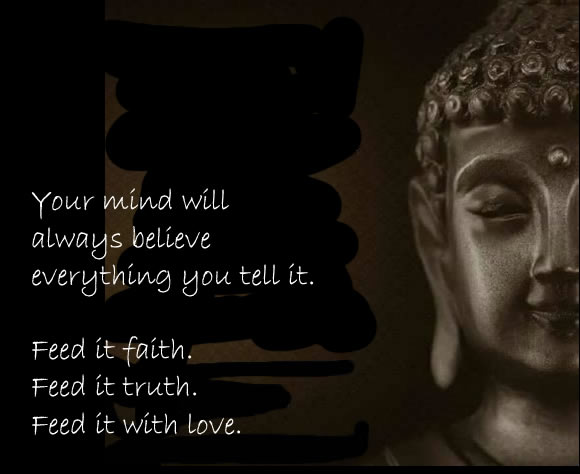Stress |
m | |||||||
Posted to Subscribers on 22 August 2019 |
||||||||
|
|
Dear Subscribers, Before going to level two issues, I want to rewind a bit because the analytical process is not very warm and fuzzy and easily gives rise to feelings of hopelessness. This is not the desired outcome so I want to make two prefatory comments. The first is that all analysis in field of health and healing rests on a diagnosis of what is wrong. Because this involves questions and assessments, it can feel vague, like chasing something invisible, or critical because the emphasis is on what is wrong. Therefore, one tries to move through this part of the process as quickly as possible so that the bulk of the time and effort is focused on making things right rather than obsessing over what is wrong. To fix any issue, personal or general, changes are usually necessary and this always involves the ability to envision the outcome and then to make the required adjustments. Inherent in this process is the capacity to make constructive plans and muster the courage and decisiveness to take action. These visionary qualities fall mainly under the domain of fire, and many people have never experienced fire in a positive manner. They have seen the offensive side of fire: competition, abuse of authority, risk taking, anger, violence, and toxicity in general. Very few have seen the other side of fire: warmth, spontaneity, courage, clarity, the capacity to focus intensely on details and to motivate and inspire, the willingness to make sacrifices for others, loyalty, teamwork, and most importantly obedience to divine inspiration. It really is tragic that what we mostly see is the misuse of fire than the passion for perfection. I am going to give this picture a frame, temporary frame, by referencing Tulsi Gabbard. I think she is the most visible positive model of fire in the current political arena. Two factors stand out more than others in her manifestation of who she is. She took personal responsibility for protecting the country after 9/11, and she constantly speaks of service to others. Behind this stance, one cannot miss the level of her conviction and courage. I happen not to agree with either her analysis of the problem nor the solution so without detracting from her obvious virtues, I want to rewind two paragraphs so we understand that the analytical part is necessary even when unpleasant. It took me a few minutes to realize the 9/11 story was going to come unhinged. I still had a TV in those days and channel hopped and saw that the pieces would simply never fit together. Secondly, at 77, I have been around the block a few more times than Tulsi, but I was duped when it came to the Gulf of Tonkin incident. From the moment of the first radio announcement, which I will never forget, I thought the Navy provoked attack. It did not occur to me that an attack never even took place, but since the publication of the Pentagon Papers, none of us should overlook the possibility that the official narrative is possibly incorrect. That said, many actions are based on what we believe which is why discernment is so essential.
My point here is that if we want to understand fire, we can look at someone like Tulsi. She is very obviously sincere, honorable, and dedicated. She also has courage. Being myself fiery, these qualities are perfectly visible to me, but fire has other characteristics that are not necessarily agreeable to all. It is hierarchical. In the military, there is a chain of command, and very difficult decisions are often made with tremendous consequences on others. Therefore, the analysis of the options must be correct so that the strategies adopted have the least negative impact possible. I think this approach is just as valid in health and healing as in war and politics because we see extreme measures used in medicine that often exceed the safety limit. These include toxic substances, excess reliance on surgery, and even burning through use of radioactive materials. It is important, I think, to see how information is assembled and how decisions are made, and when extreme measures are essential and when they are perhaps only to be held in reserve in case all other strategies fail. Now, to dissect Tulsi just a bit more, I will acknowledge her command over herself. She has been attacked and has not shown the slightest loss of control over herself. She has seen war and suffering and wants to bring the troops home and reallocate resources to build up the domestic infrastructure. In short, her experience has convinced her of the futility of regime change wars, but the curious thing about running for president is that one has to imagine oneself winning in order to convince oneself and others than one can handle the complex job of being commander-in-chief, and this is also a fiery view of the position she seeks to fulfill. I prefer different language, and to her credit, she does sometimes say, "as your president" which ruffles fewer of my feathers. There are degrees of pacifism and my recent use of the word pacifist generated heated e-mail. At first, I did not even understand what the issue was, but I listened to an interview of Chris Hedges and figured out what the trigger is. Let me put it another way. If a mother sees that her children are squabbling and perhaps bullying each other, she has several options. She can let them duke it out or intervene. If she intervenes, she has several more options, such as figuring out who did what, who started the issue, or she can give each child a chance to explain what happened and then ask each one the best strategy for finding a win-win solution. When the monkey is put on the backs of the children, they will look at the issue differently: what is fair and who benefits in which way from the proposed solution. This strategy encourages problem solving as opposed to winner takes all. This approach also tends to foster cooperation over competition, something I feel needs to play a greater role in our social interactions. When children are asked to come up with fair solutions, they often show incredible creativity. Moreover, rarely will they propose a spanking or time out. They will address the issues and begin problem solving rather than proposing suitable punishments. This requires a lot more effort on the part of adults, but it is worth the effort if the children develop good character and higher skills when interacting with others. When the winner takes all, there is an inherently unstable outcome which is invariably temporary. What I am trying to say in so many words is that when one prevails but not in an acceptable manner, the seeds of dissidence and destruction are embodied in the alleged victory. Whenever another individual is victimized in the process, an instability exists and it will generate karma and ultimately equal and opposite reactions. The reactions may not necessarily involve similar tactics but they will restore balance. In short, what I am saying here about pacifism is that might does not make right. Harmony makes things right, and this involves all concerned, not just whatever satisfaction the strongest has about victory over the weaker. As I stated in the last post, we have a fight or flight mechanism and what the flight individual is signaling the fight individual is that cooperation with the agenda will be withheld. Ultimately, that is a winning strategy. We have only to see the era of the flower children to realize that agendas can be brought to their heels when dissidence reaches a certain level. So, we should never underestimate the power of a Gandhi over an empire and that, I believe, is the foundation of non-violence and pacifism. In the case of non-cooperation, the solution may seem slower, but I do not really believe it is as slow as we think because India got its independence through peaceful means and the war in Vietnam was lost as much by its unpopularity as by incredibly incompetent leadership on the part of the U.S. and its alleged ally, the South Vietnamese government. I was there, not in uniform, not armed, and not in alignment with the agenda, but I wrote the withdrawal plan and gave it to one of my professors who gave it to Nixon. A few months later, I was having breakfast in Dubrovnik and an American psychiatrist at the table next to mine dropped the Time Magazine on my table when he was leaving. There, I saw that my withdrawal plan had been adopted. That is the curious way the world works. If tasked with such a mission in Afghanistan or Iraq or anywhere else, I would gladly share my ideas about how to save face and lose at the same time. That said, leaving is not a final solution. It is the first step towards reducing tensions and making room for harmony. As we have seen, Vietnam became a trading partner, but that is a very small feather in the cap compared to the monumental havoc left by nonsensical intervention. As you know, I believe the karma persists through as many incarnations as it takes to find balance. So, ideally, we should also examine the karma of the people we elect to high office. This is perhaps a tiresome and too lengthy response to the issue of pacifism, but there is an extraordinary depth to the picture I am trying to frame.
Yin and Yang The last post was about polarities. The conflict between negative and positive can be softened simply by changing the language a bit. For instance, we can say magnetic and radiatory. Unlike words that imply inferiority and superiority — or gender differences — we can refer to principles such as the capacity to hold a good idea, a noble idea, or divine idea in place without repercussions. Nothing comes into manifestation without magnetism so there must be an attraction between the principle of causation and actuality. This is important and I want desperately to ground the idea so it sticks. Ideas can float around, but they are not anchored without receptivity which is a yin function. We can flirt with this idea or that. We can flirt with people we might consider as partners, but the energy does not anchor unless there is sufficient attraction to sustain a connection. There are parallel examples of causality and attraction that permeate all features of incarnate existence, even what seems to us to be inanimate. What Chris Hedges was saying is that our society is violent. We like our guns, even the automatic weapons. I think he is too pessimistic. I see the addiction to weaponry as an overlay, an unskillful and dangerous reliance on methods that cannot increase the beauty or civility of our culture. I am not saying whether they should be banned, but there is no doubt in my mind that automatic weapons should not be privately owned. I think there has to be a line somewhere and assault is not a prerogative for which we have constitutional protection. Defense is different but I would like to see martial arts studios in all the areas with gangs and even offered in schools as an alternative to competitive sports, most especially in areas where there are higher levels of crime. We have to give up the idea that non-violence is for sissies, and this is best accomplished by mastery of oneself and fidelity to the moral high ground. For me, this is a sensible interim response to rising tensions, but I do not see many so-called leaders modeling cooperation over opportunism. That said, cooperation is one of many initiatives that could rebalance our society, keeping in mind that yin and yang are partners, not competitors. This means that in everything from astrology to physics or politics, we only need to change a word here and there to change the perception of relationship. In theory, we understand that spouses are partners, but do we fully grasp that they are equal partners with slightly different roles and polarities? Polarities are not meant to divide but to stimulate organization of energies. The foremost authority on polarity in Western philosophy was Empedocles (5th century BC). I dedicated an e-book to him. He believed that the elements are brought into combination through love and separated by strife, but we can use very simple examples to explain in logical terms how what we perceive is affected by the combination and separation of energies. I used fire and water in the example a couple of days ago. The appearance or state of water is affected by fire. If there is very little fire, we have ice. If there is more fire, water is liquid, and if there is yet more, it is vaporized. It does not cease to exist, but it is modified and there is some speculation in cutting edge physics that there are even more states of water where the inherent magnetism creates new possibilities for new expressions, such as building bridges just through magnetism. Fire, of course, is also affected by water. It is soothed by a little cooling moisture, threatened by too much moisture, and ceases to be visible when there is too much water. Fire, if the truth were known, is always afraid of polarity and opposition, which is why the chain of command works, not just in the military, but in all matters where there are ideologies, theories, and faith. Fire can however clash with opposing opinions so fire is actually the bravest as well as the most vulnerable of the elements, but we need it whenever transformation is required so as to make order out of chaos. Being visionary, fire can see what is possible before it is actual. Someone has to take the vision and model it or civilization itself will crumble under its own weight. This, I believe, is what we are now facing, but I am not in the same mental camp as Hedges because I think the Phoenix can emerge from the ashes, and we can reinvent ourselves. However, this is easier and smoother when there is less resistance. To the extent that our understanding is shaped by what we think we know based on the never-ending propaganda spewed at us, it might be worthwhile to try to liberate our imagination through flirtation . . . not with people but with ideas. Try this and then that and then the next idea and see which fits best. We do this with everything from shoes to job offers and marriage proposals, why not with doctrines, theses, and thoughts?
Stress I am going to rewind a little and then provide some help that I hope will be useful. When first taking on a new task, it is normal that more effort and time are required by the inexperienced than by those with more experience. At this stage in my life, what used to take days or even weeks often only takes seconds or minutes. I understand however that some of my students are more or less where I was half a century ago. Sometimes this means spending weeks or even years on some difficult issue for which they have yet to figure out the solution. In a way, this is normal, but it is also risky because too much focus on the negative gives rise to all kinds of unnecessary concerns. Likewise, I can suggest that with so many young people tweeting and blogging and running youtube channels, we tend to see a mixture of precocious understanding and criticism, not to mention sophomoric splendor. We have to somehow get beyond the criticism to the fixes. For instance, some people think our society is too commercialized, but there is power in the pocketbook and absolutely everyone who spends has options about what to buy and where to buy it. Every time one opens one's wallet, one is in a sense voting. Every dollar spent at a farmer's market supports the local community whereas who knows the ultimate beneficiary of a dollar spent elsewhere, but probably Jeff Bezos is the ultimate one to benefit, not the only one, but his empire is greater probably than that of some countries. Likewise, for those who watch TV and who get their news on TV, we have to see who owns the channels and then dare to change channels to compare content. I would challenge anyone who watches CNN to spend a few hours with Epoch Times to see if the slant is even remotely similar. In between, there are many more options and sometimes the sources are different, for example, is it true that Epstein's death was announced before it actually happened on one channel? If it is even remotely true, then there is a lot of work ahead for many journalists and people in law enforcement. By daring to rock the boat, one ultimately finds the freedom to define reality in one's own terms, in terms that are consistent with one's core beliefs. Then, we are halfway home to feeling sovereign and clear. Meanwhile, the first level of assistance I would like to offer is with stress management. Multitasking is a seriously debilitating habit because in the realm of time, reality is linear and there is action and reaction and integration so every task needs attention and then time to gestate and mature. I do idiot work between tasks and hard as I work, I only do what I feel like doing, meaning if something requires a lot of concentration, I do it when there are no interruptions and when I feel focused and clear. In between, routine tasks like washing dishes and laundry, shopping for groceries, playing with Jinzu, allow time for integration. That said, I sometimes break the rhythm with a diabolically difficult Sudoku puzzle. Of course, I also listen to music and try to find some humor to balance the weight of responsibilities with laughter. The point is that everything in the third dimension needs to be sequential, not overlapped. Next, there are herbs for stress, and the way they work is to extend the margins for coping. In rat trials, they might put rats into water tanks from which they cannot escape. The rats have to paddle and paddle and paddle to stay alive. It is stressful for them. If their cortisol levels stay normal, the herb is deemed potentially helpful for other mammals such you and yours truly. There are single herbs and combinations that have passed the cortisol test. For instance, ashwagandha has been really thoroughly researched, mainly in India where it is also an ingredient in modern versions of Chyawanprash and this jam is even better than ashwagandha when taken alone. Russians have done a lot of study on rhodiola, ginkgo, and mumiyo (their shilajit). They approach the studies a bit differently. but these substances have profound effects on endurance as well as the capacity to resist damage from threats as serious as Chernobyl. I formulated my Yin and Yang Elixirs to meet two criteria: stamina and consciousness. When one is panicked, energies tend to descend into the lower chakras. When this happens, it is harder to remember one's destiny and to remain clear. Worrying also takes its toll so one ends up feeling depleted. Thus, when deciding how to create the Yin Elixir, my goal was to help people to stay in balance mentally while simultaneously minimizing the irritation and stress to the nervous system. Even if reflexes are fast, nerves can fray and the mind can flit from one scenario to another. In the process, the center can seem to go missing along with the clarity required to solve the issues. So, the idea was to support a calm approach to challenges through both extending margins and reducing "wobble" — without losing acuity or strength.
For Yang types, tenacity can result in a loss of mental, emotional, and physical flexibility. Moreover, by being determined to win, some strategies might come bundled with risks, such as repercussions from others. It is important to underscore that both yin and yang types are triggered by fear, but in the case of yin individuals, that fear engages the nervous system so that people are quick but often too nervous to stay organized. With yang individuals, the goals are more or less carved in stone so rigidity is a bigger risk than chaos. As a consequence, receptivity is drastically reduced, and depending on the strategies used for coping, fear may spiral down into suspicion and paranoia since the gamble is that only one person leaves the field on his own terms. The herbs that support the coping with stress can be found on AdrenalHerbs.com.
Lyme Study Lastly, I would like to remind people that the Lyme study is scheduled for next month. I am hoping for six to ten participants so those who are interested can contact me for further information. Participants need to be ambulatory and prepared to stay at least two weeks. Organic vegetarian juices and meals will be provided and the cost will be shared by the participants. In addition to food, there will be accommodations and herbs. I am estimating the cost of everything put together at $600-800 plus air fare or other transportation. For further information, visit the Institute for Invisible Epidemics. Many blessings, Ingrid
Copyright by Ingrid Naiman 2019
Radiation: the Fukushima Nuclear Hazards || Nuclear Power
|
|||||||
Home || Contact Us |
||||||||
No content on any of the pages of this web site may be reproduced without written permission of Ingrid Naiman and Seventh Ray Press, publisher of this site. |
||||||||
|
||||||||



